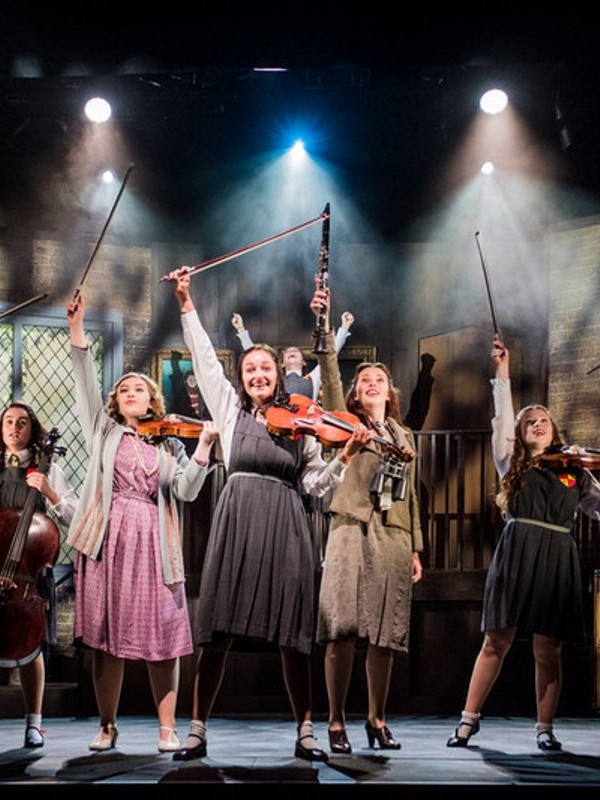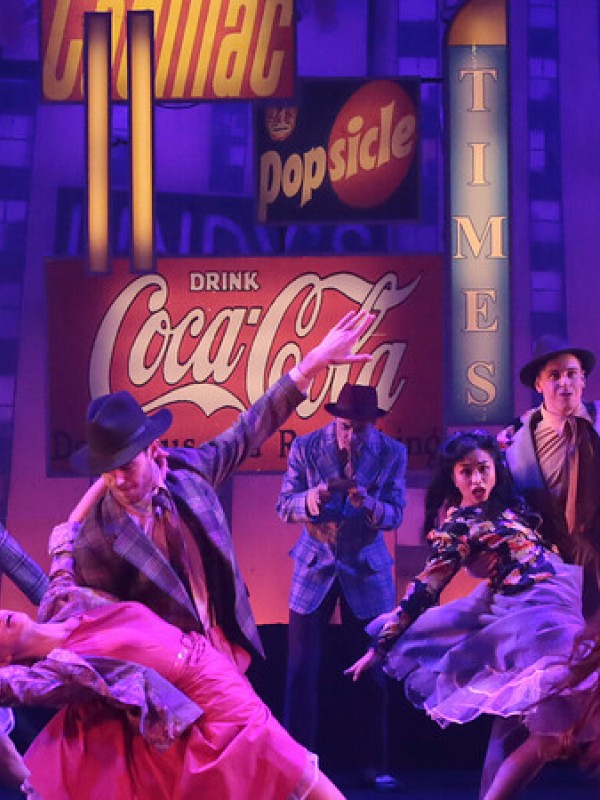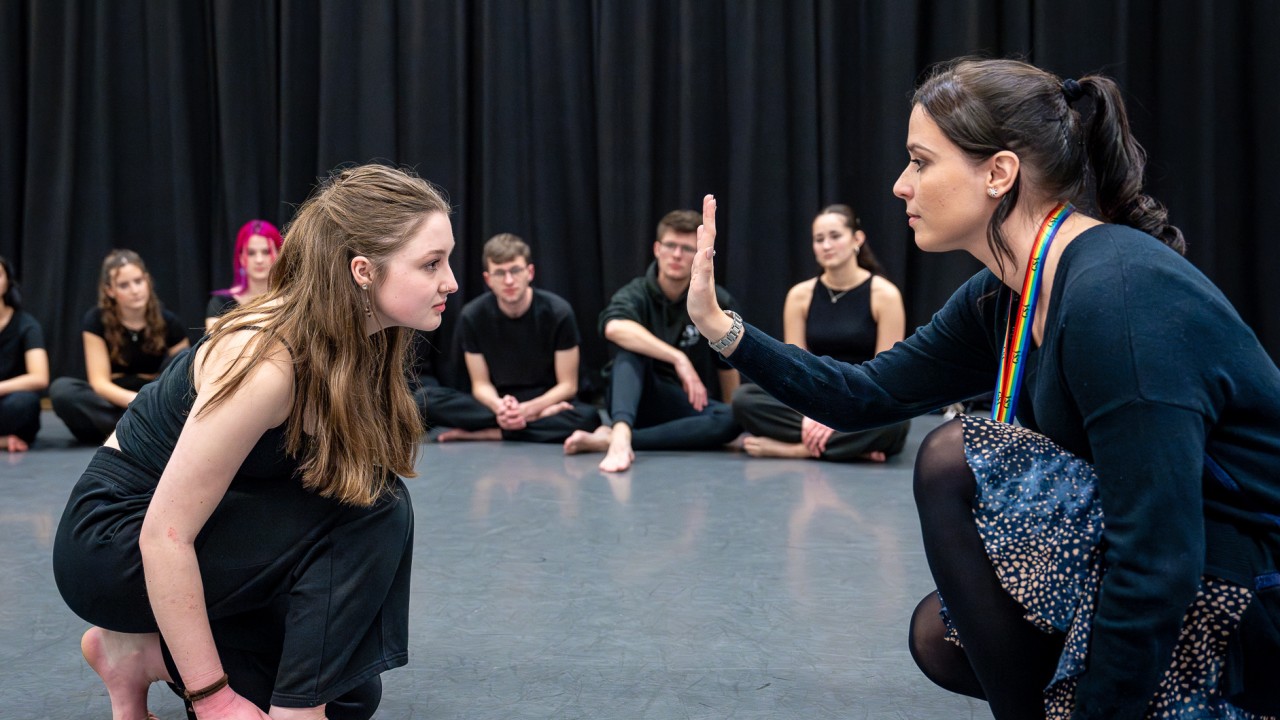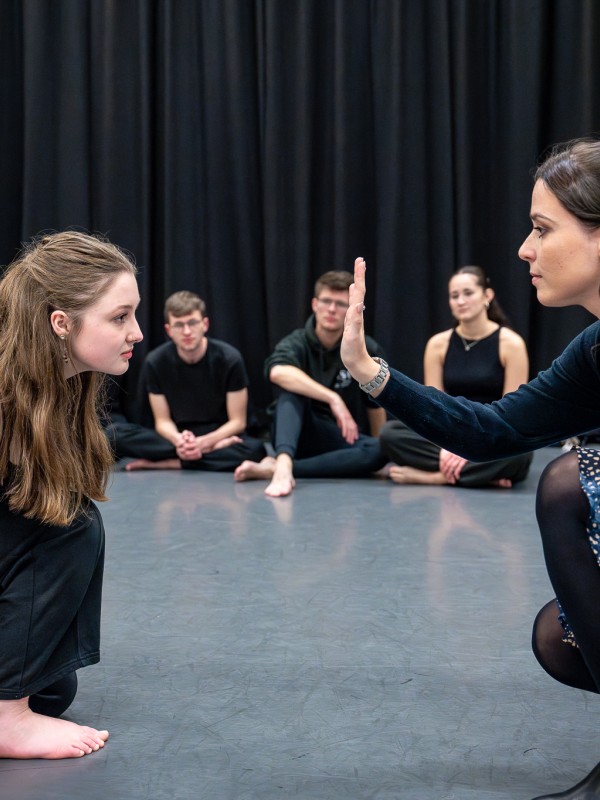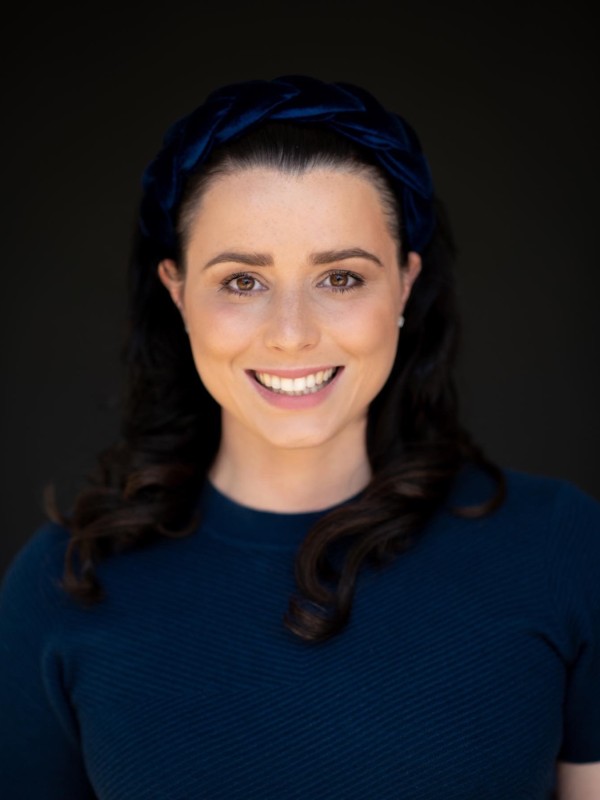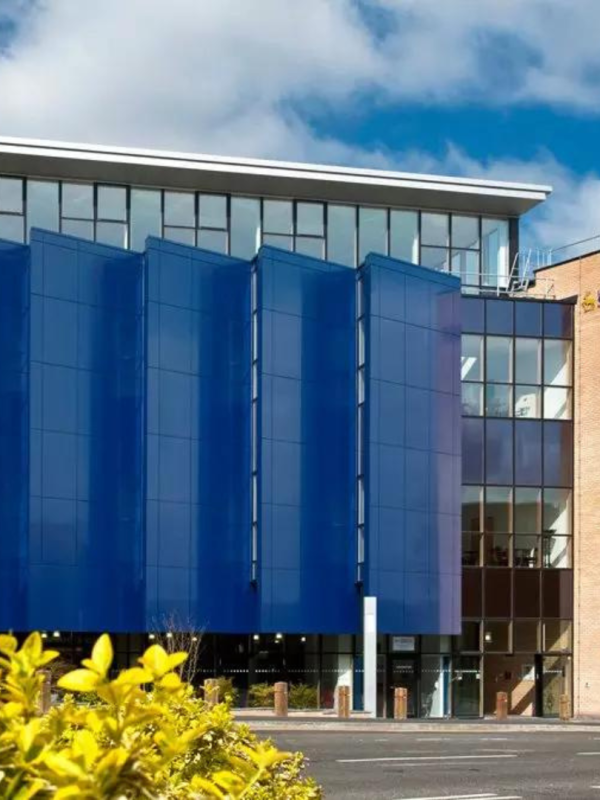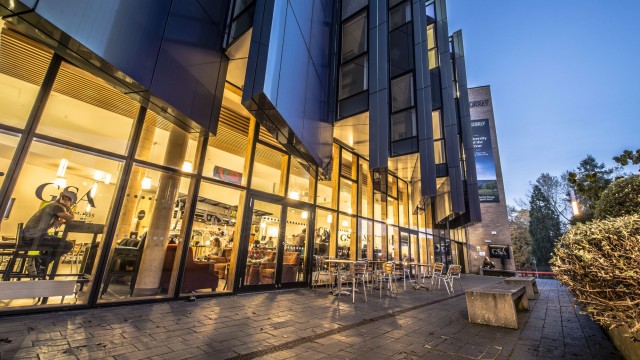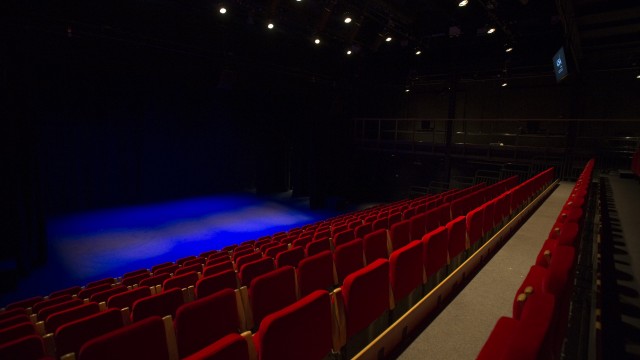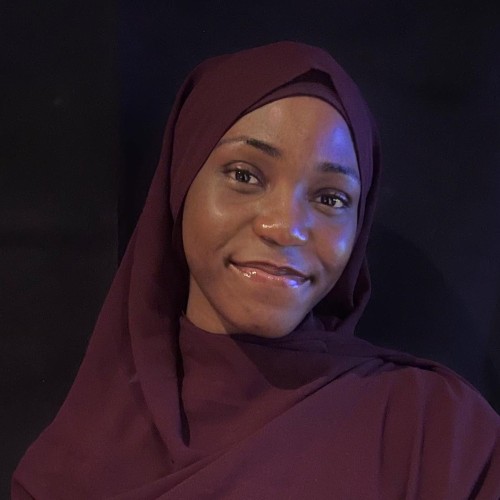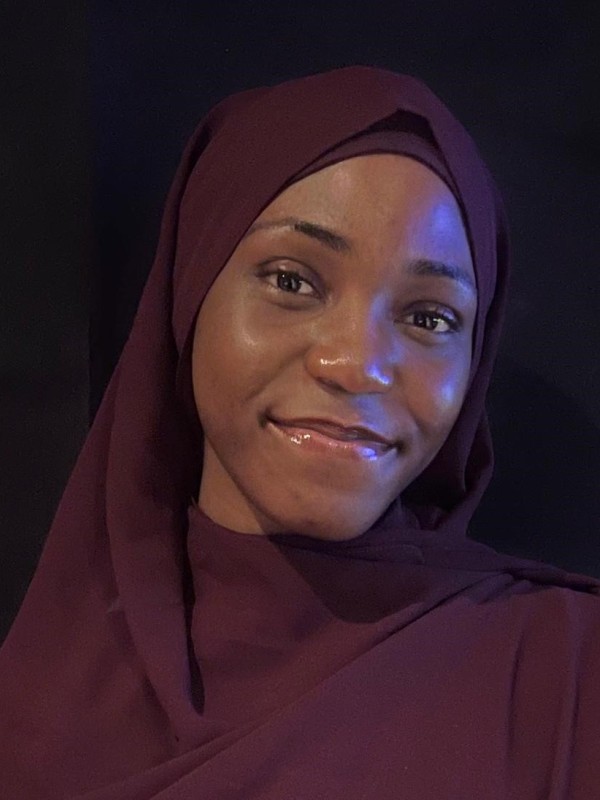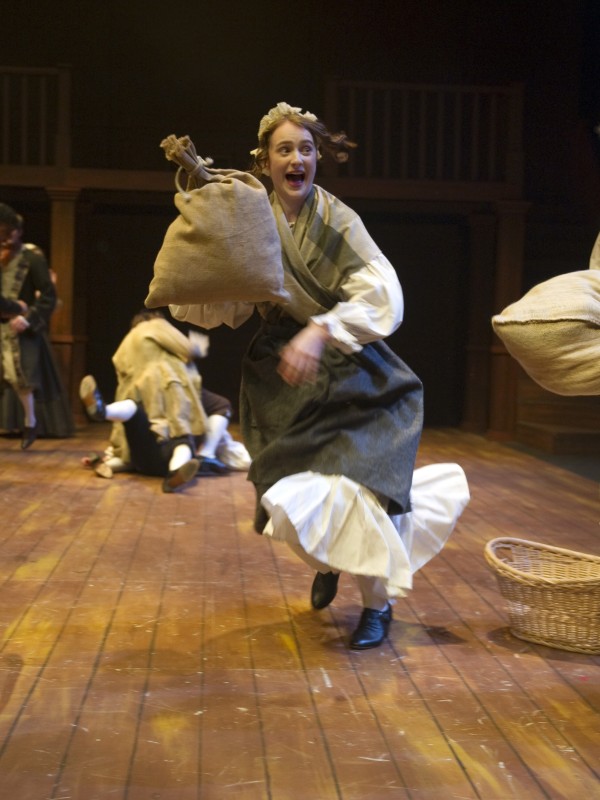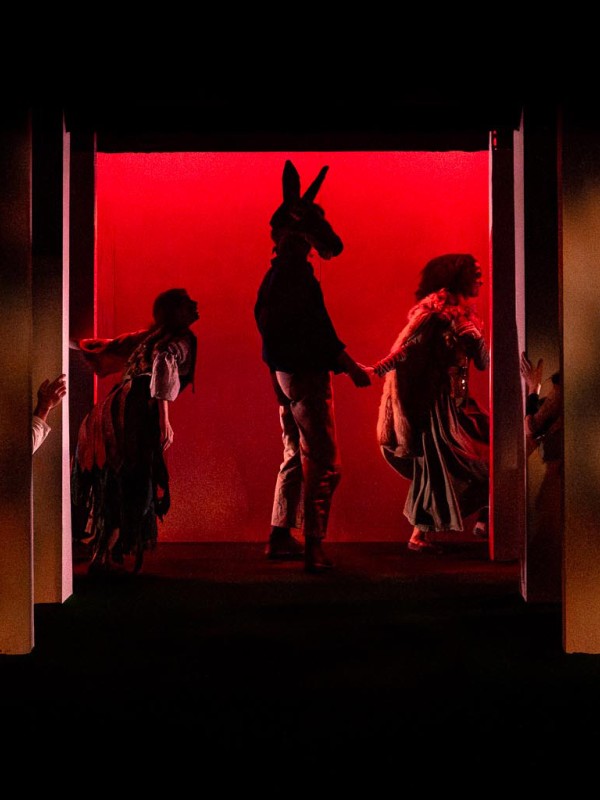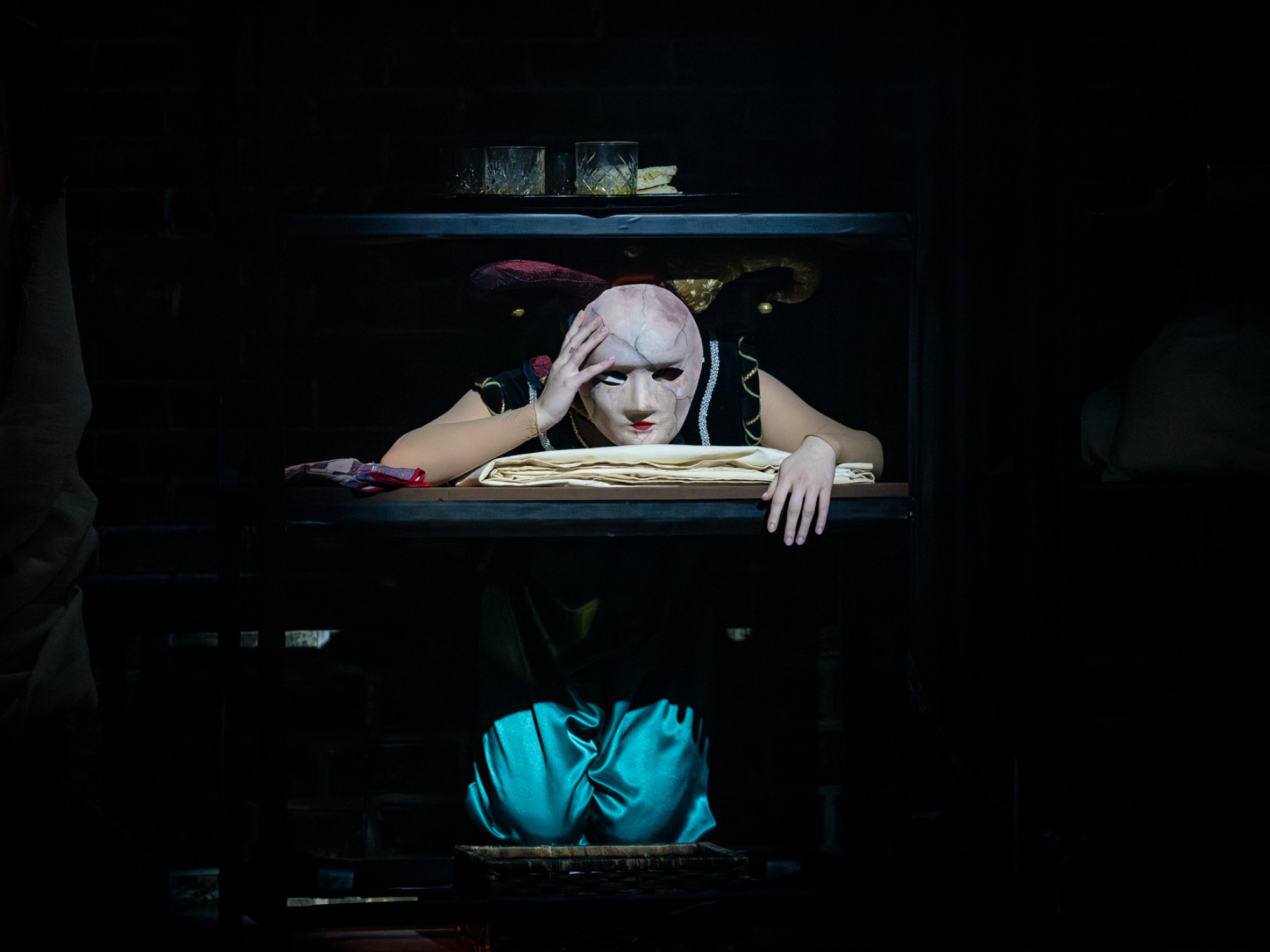
- Applied and Contemporary Theatre
BA (Hons) — 2027 entry Applied and Contemporary Theatre
Our Applied and Contemporary Theatre BA (Hons) at the Guildford School of Acting (GSA) is designed to train tomorrow’s theatre-makers, who aspire to use theatre to build communities and influence social change. You will learn how to devise, produce and direct theatre, work creatively in a range of settings and become the next generation of performance artists, activists and creative entrepreneurs.
4,161+ people have created a bespoke digital prospectus
Why choose
this course?
- Applied theatre utilises drama to discover, learn and share the issues and themes that concern communities and spotlight social inequalities. This course engages with contemporary politics and not only asks how we can make theatre but why do we make theatre and what is it that you want to say through performance.
- Take the opportunity to get industry-ready with our award-winning Professional Training placements.
- This unique programme trains future directors, devisors, performance artists, theatre makers, writers, applied theatre practitioners and much more.
Statistics
3rd in the UK
For drama, dance and cinematics in the Complete University Guide 2026
10th in the UK
For drama, dance and cinematics in The Times and Sunday Times Good University Guide 2026
1st in the UK
For drama and music in the Daily Mail University Guide 2026
What you will study
On our BA (Hons) Applied and Contemporary Theatre course, you will be taught by industry-leading professionals and will join a vibrant community of talented performers, theatre-makers, creative practitioners, stage managers and technicians.
You will embark on a journey that will equip you to devise, produce and direct theatre, work creatively in a range of settings such as prisons, youth centres and care homes, build industry contacts and become the next generation of performance artists/activists and creative entrepreneurs. As well as studying core skills in performing disciplines (voice, singing, movement, theatre making and music), course content includes, but isn’t limited to:
- Theatre for social change
- Political theatre
- Contemporary performance
- Devised theatre
- Community theatre
- Theatre in education
- Education and outreach programmes
- Health and wellbeing organisations
- Disability arts
- Creative ageing
- Theatre studies
- Collaborative large-scale ensemble performance in a traditional theatre setting
- Professional development.
Alongside your core studies, you will also be offered opportunities to engage with the wider theatre sector. Field trips and visits from guest artists have previously included the Royal Albert Hall, London Bubble Theatre Company and theatre practitioner Indy Lee.
In Year 2, you'll undertake work placements where you gain professional experience within several innovative theatre/arts organisations. There is also a further optional Professional Training year between the second and final year of study. Work placement hosts have included but are not limited to Chickenshed, Peer Productions, Burnt Orange Theatre, Guildford Shakespeare Company, Boundless Theatre, New Victoria Theatre and Yvonne Arnaud Theatre.
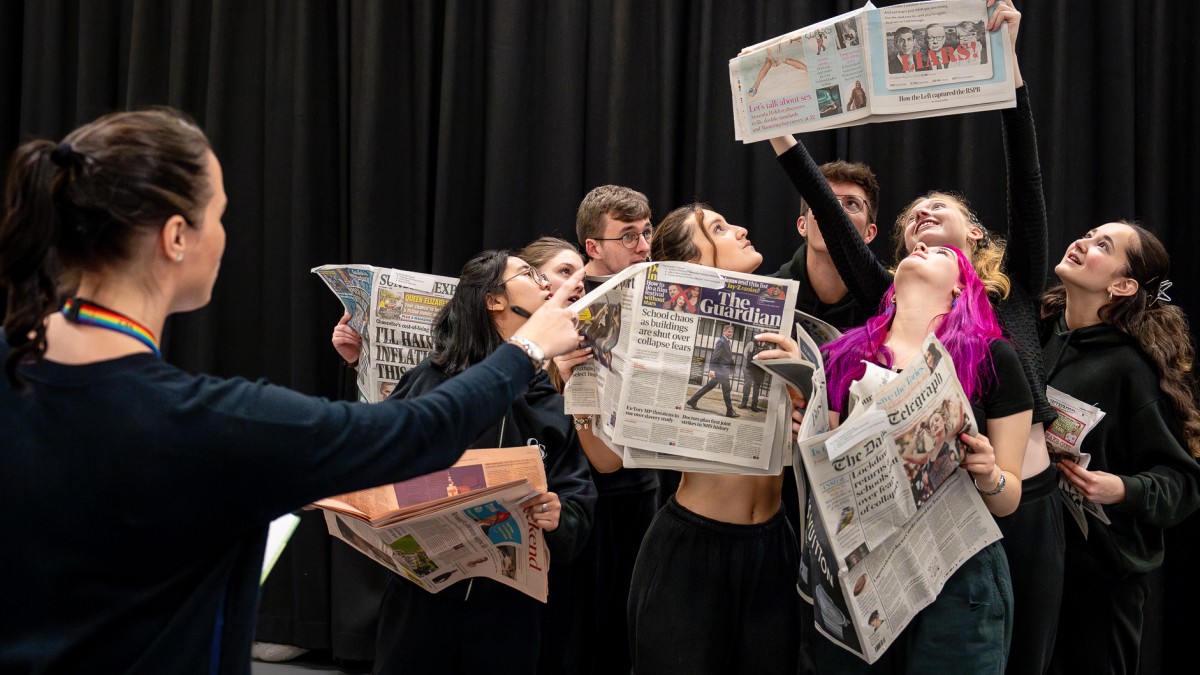
The academic year is divided into two semesters of 15 weeks each. Each semester consists of a period of teaching, revision/directed learning and assessment.
The Guildford School of Acting (GSA) delivers its provision across three teaching blocks, within the University of Surrey’s existing semester structure.
The structure of our programmes follow clear educational aims that are tailored to each programme. These are all outlined in the programme specifications which include further details such as the learning outcomes.
Please note: The full module listing for the optional Professional Training placement part of your course is available in the relevant programme specification.
Modules
Modules listed are indicative, reflecting the information available at the time of publication. Modules are subject to teaching availability, student demand and/or class size caps.
The University operates a credit framework for all taught programmes based on a 15-credit tariff.
Course options
Year 1 - BA (Hons)
Semester 1 & 2
Compulsory
This module aims to develop the skill base of the creative practitioner in key elements of performance. Across Level 4, students will study practical skills in studio-based group classes. Students will encounter and explore the application and integration of core technical performance skills. Students will engage with the rudiments of music, voice and singing and undertake movement training designed to develop the experiential, expressive and analytical skills of the creative individual. Students will be guided to engage in reflective practice to engender resilience and wellbeing by documenting and reflecting upon their learning journey. This module provides students with the foundational training that is required to develop an artistic skill-set, within an international context.
View full module detailsThe Actor and the Ensemble enables students to explore different modes of performance. This includes collaborative & devised practice, applied theatre and social justice, and contemporary political performance. In the first teaching block you will be working as an ensemble exploring post-modern collaborative practices. In the second teaching block students consider how theatre can be used to reflect the stories and issues pertaining to a diverse range of communities, both locally and internationally. The third teaching block looks in depth at contemporary political performance. Work is shared with peers at the end of each teaching block as work in progress in a safe practical performance setting.
View full module detailsThis module will engage students in the study of the history, impact and ethos of theatre by focusing on key ideas and approaches that have formed its development. Topics to be studied include, but are not limited to theatre history, theories of performance and exploration of the political, social and ethical response, role, responsibility and impact of theatre in relation to communities and societies globally. This module seeks to empower and promote the social, economic and political inclusion of all, irrespective of age, sex, disability, race, ethnicity, origin, religion or economic or other status.
View full module detailsYear 2 - BA (Hons)
Semester 1 & 2
Compulsory
This module builds from the programme’s Level 5 modules and is designed to allow students to advance the development of skills and knowledge in a practical professional context, enabling students to learn and discover with autonomy. Students will engage with a placement either within or beyond the school, this decision to be at their preference. Their placement will enable them to progress their understanding of professional creative contexts. Students will be supported to critically reflect upon their experiences and link these to the work undertaken on the programme through Levels 4 and 5. Students will be encouraged to observe and participate in sustainable enterprise and entrepreneurship, to foster an understanding of relevant sustainable financial and business models. They will also be encouraged to collaborate with the arts organisations in order to understand the creation of sustainable funding streams, and consider existing resources when designing and devising.
View full module detailsThis module builds upon the work undertaken at Level 4 and further develops the skill base of the creative practitioner and facilitator in theatre practice, singing, music, movement and voice, in relation to both self and others. Across Level 5 students will study practical skills in studio-based group classes and undertake observations of teaching and rehearsal practice within GSA. Students will encounter, explore and research the application and integration of core technical skills through the lens of the facilitator. This module continues the process of the individual understanding how they relate to the world and those around them through the inclusive and considered facilitation of the core fundamentals that underpin the programme. Students will be guided to engage in reflective practice to engender resilience and wellbeing by documenting and reflecting upon their learning journey. This module provides students with the foundational training that is required to develop an artistic skill-set, within an international context.
View full module detailsThis module enables students to consider theatre making approaches in a variety of contexts. These may include, but are not limited to schools, small scale theatre, site specific theatre, fringe theatre, community groups, professional training, education outreach activities and online learning, across diverse global communities. Through guided and independent case studies, students will explore a range of innovative and established practices as well as working alongside guest artists.
View full module detailsThe Ensemble and the Audience offers the student the opportunity to integrate principles and skills encountered from across the programme. Building on the work of The Actor and the Ensemble at Level 4, the student will deepen their relationship to collaboration, artistic autonomy and self-made work by exploring techniques of and taking stimulus from theatre for youth in Teaching Block 1 and theatre with communities in Teaching Block 2 to create inclusive ensemble based, self-generated work. Work is developed via critical reflection of existing practitioners and companies, examining global practice through the lens of both creator and participant. The creative outcome is shared with their chosen community group.. Students may wish to engage with the work by taking on a professional creative role required in the facilitation of the collaborative project.
View full module detailsYear 3 - BA (Hons)
Semester 1 & 2
Compulsory
This module enables students to work collaboratively on the research, rehearsal and making of inclusive theatre for performance to specific audiences, integrating principles and skills from across the programme. Students engage with three fully realised performance projects, one per Teaching Block, continuing to interrogate the landscape of collaboration, artistic autonomy and self-made work for a specific audience. In Teaching Block 1 students work collaboratively to create an Applied Theatre project with a chosen community group. The project should be a series of practical workshops that respond to the needs and interests of their participants. In Teaching Block 2 students will work either as a group or as solo artists to form a devised piece of politically engaged performance. This performance may take place at GSA, in the community or at a particular site. In Teaching Block 3 students will work on a public production at a performance space at GSA. This project will be directed by a professional creative.
View full module detailsStudents will engage with reflective analysis of their personal professional development and undertake critical reflection of steps taken so far. Students will identify detail potential further personal professional development opportunities and methods. The module engages students with a range of areas relating to industry practices, protocols and resources in pursuit of developing the necessary skills to undertake and sustain a career within the creative industries. Students will be encouraged to identify sustainable practice regarding good health and well being, to understand the creation of sustainable funding streams, to encourage collaboration with the community, and to foster an understanding of relevant sustainable financial and business models.
View full module detailsThis module aims to maintain the skill base of the creative practitioner in theatre practice, singing, music, movement and voice. Across Level 6 students will utilise the contact time of this module to support and further develop their inclusive practical skills in studio-based group classes as best supports their personal development as a creative practitioner according to the student’s individual skill set and projected career aspirations. This module also provides space and support for any technical requirements that arise out of their fully realised performance projects. Students will be guided to engage in reflective practice to engender resilience and wellbeing by documenting and reflecting upon their learning journey.
View full module detailsYear 1 - BA (Hons) with placement
Semester 1 & 2
Compulsory
This module aims to develop the skill base of the creative practitioner in key elements of performance. Across Level 4, students will study practical skills in studio-based group classes. Students will encounter and explore the application and integration of core technical performance skills. Students will engage with the rudiments of music, voice and singing and undertake movement training designed to develop the experiential, expressive and analytical skills of the creative individual. Students will be guided to engage in reflective practice to engender resilience and wellbeing by documenting and reflecting upon their learning journey. This module provides students with the foundational training that is required to develop an artistic skill-set, within an international context.
View full module detailsThe Actor and the Ensemble enables students to explore different modes of performance. This includes collaborative & devised practice, applied theatre and social justice, and contemporary political performance. In the first teaching block you will be working as an ensemble exploring post-modern collaborative practices. In the second teaching block students consider how theatre can be used to reflect the stories and issues pertaining to a diverse range of communities, both locally and internationally. The third teaching block looks in depth at contemporary political performance. Work is shared with peers at the end of each teaching block as work in progress in a safe practical performance setting.
View full module detailsThis module will engage students in the study of the history, impact and ethos of theatre by focusing on key ideas and approaches that have formed its development. Topics to be studied include, but are not limited to theatre history, theories of performance and exploration of the political, social and ethical response, role, responsibility and impact of theatre in relation to communities and societies globally. This module seeks to empower and promote the social, economic and political inclusion of all, irrespective of age, sex, disability, race, ethnicity, origin, religion or economic or other status.
View full module detailsYear 2 - BA (Hons) with placement
Semester 1 & 2
Compulsory
This module builds from the programme’s Level 5 modules and is designed to allow students to advance the development of skills and knowledge in a practical professional context, enabling students to learn and discover with autonomy. Students will engage with a placement either within or beyond the school, this decision to be at their preference. Their placement will enable them to progress their understanding of professional creative contexts. Students will be supported to critically reflect upon their experiences and link these to the work undertaken on the programme through Levels 4 and 5. Students will be encouraged to observe and participate in sustainable enterprise and entrepreneurship, to foster an understanding of relevant sustainable financial and business models. They will also be encouraged to collaborate with the arts organisations in order to understand the creation of sustainable funding streams, and consider existing resources when designing and devising.
View full module detailsThis module builds upon the work undertaken at Level 4 and further develops the skill base of the creative practitioner and facilitator in theatre practice, singing, music, movement and voice, in relation to both self and others. Across Level 5 students will study practical skills in studio-based group classes and undertake observations of teaching and rehearsal practice within GSA. Students will encounter, explore and research the application and integration of core technical skills through the lens of the facilitator. This module continues the process of the individual understanding how they relate to the world and those around them through the inclusive and considered facilitation of the core fundamentals that underpin the programme. Students will be guided to engage in reflective practice to engender resilience and wellbeing by documenting and reflecting upon their learning journey. This module provides students with the foundational training that is required to develop an artistic skill-set, within an international context.
View full module detailsThis module enables students to consider theatre making approaches in a variety of contexts. These may include, but are not limited to schools, small scale theatre, site specific theatre, fringe theatre, community groups, professional training, education outreach activities and online learning, across diverse global communities. Through guided and independent case studies, students will explore a range of innovative and established practices as well as working alongside guest artists.
View full module detailsThe Ensemble and the Audience offers the student the opportunity to integrate principles and skills encountered from across the programme. Building on the work of The Actor and the Ensemble at Level 4, the student will deepen their relationship to collaboration, artistic autonomy and self-made work by exploring techniques of and taking stimulus from theatre for youth in Teaching Block 1 and theatre with communities in Teaching Block 2 to create inclusive ensemble based, self-generated work. Work is developed via critical reflection of existing practitioners and companies, examining global practice through the lens of both creator and participant. The creative outcome is shared with their chosen community group.. Students may wish to engage with the work by taking on a professional creative role required in the facilitation of the collaborative project.
View full module detailsYear 3 - BA (Hons) with placement
Semester 1 & 2
Compulsory
This module enables students to work collaboratively on the research, rehearsal and making of inclusive theatre for performance to specific audiences, integrating principles and skills from across the programme. Students engage with three fully realised performance projects, one per Teaching Block, continuing to interrogate the landscape of collaboration, artistic autonomy and self-made work for a specific audience. In Teaching Block 1 students work collaboratively to create an Applied Theatre project with a chosen community group. The project should be a series of practical workshops that respond to the needs and interests of their participants. In Teaching Block 2 students will work either as a group or as solo artists to form a devised piece of politically engaged performance. This performance may take place at GSA, in the community or at a particular site. In Teaching Block 3 students will work on a public production at a performance space at GSA. This project will be directed by a professional creative.
View full module detailsStudents will engage with reflective analysis of their personal professional development and undertake critical reflection of steps taken so far. Students will identify detail potential further personal professional development opportunities and methods. The module engages students with a range of areas relating to industry practices, protocols and resources in pursuit of developing the necessary skills to undertake and sustain a career within the creative industries. Students will be encouraged to identify sustainable practice regarding good health and well being, to understand the creation of sustainable funding streams, to encourage collaboration with the community, and to foster an understanding of relevant sustainable financial and business models.
View full module detailsThis module aims to maintain the skill base of the creative practitioner in theatre practice, singing, music, movement and voice. Across Level 6 students will utilise the contact time of this module to support and further develop their inclusive practical skills in studio-based group classes as best supports their personal development as a creative practitioner according to the student’s individual skill set and projected career aspirations. This module also provides space and support for any technical requirements that arise out of their fully realised performance projects. Students will be guided to engage in reflective practice to engender resilience and wellbeing by documenting and reflecting upon their learning journey.
View full module detailsProfessional Training Year (PTY)
Semester 1 & 2
Core
This module supports students’ development of personal and professional attitudes and abilities appropriate to a Professional Training placement. It supports and facilitates self-reflection and transfer of learning from their Professional Training placement experiences to their final year of study and their future employment. The PTY module is concerned with Personal and Professional Development towards holistic academic and non-academic learning, and is a process that involves self-reflection, documented via the creation of a personal record, planning and monitoring progress towards the achievement of personal objectives. Development and learning may occur before and during the placement, and this is reflected in the assessment model as a progressive process. However, the graded assessment takes place primarily towards the end of the placement. Additionally, the module aims to enable students to evidence and evaluate their placement experiences and transfer that learning to other situations through written and presentation skills.
View full module detailsTeaching and learning
GSA has a collaborative approach to learning and teaching, with an extensive support network available to students both personally and professionally. Our vocational performance and production programmes focus on the practical acquisition of technical skills combined with professional and academic development. Learned skills are integrated through participation in projects and industry-standard productions in our theatres and performance spaces. Students at GSA are taught by West End directors, casting agents, lighting designers, experienced professionals and leading academics, giving our students a comprehensive network and knowledge base they can utilise pre and post-graduation.
- Group work
- Independent study
- Lectures
- Practical sessions
- Seminars
- Rehearsals and performances
- Trips
- Tutorials
Assessment
Modules are assessed individually and credits are awarded for the successful completion of each one.
Assessment takes place through a combination of examination and/or coursework, practical examinations and reports. Check individual module information to see full details at a module level.
General course information
Contact hours
Contact hours can vary across our modules. Full details of the contact hours for each module are available from the University of Surrey's module catalogue. See the modules section for more information.
Timetable
New students will receive their personalised timetable in Welcome Week - in later terms, three weeks before the start of term.
Scheduled teaching can take place on any day of the week (Monday – Friday) between 9am and 7pm, but students may also be required to take part in productions in evenings and at weekends at certain times of the year.
View our code of practice for the scheduling of teaching and assessment (PDF) for more information.
Location
This course is based at Stag Hill campus. Stag Hill is the University's main campus and where the majority of our courses are taught.
We offer careers information, advice and guidance to all students whilst studying with us, which is extended to our alumni for three years after leaving the University.
Where do our students go?
Our graduates have an unrivalled employment record in all performance media.
98% of our Guildford School of Acting students are in employment or further study within 15 months of graduating (Graduate Outcomes Survey 2025, HESA).
Our very distinguished alumni include performers such as:
- Alexandra Mardell
- Bill Nighy
- Brenda Blethyn OBE
- Caroline Sheen
- Celia Imrie
- Chris Geere
- Danielle Fiamanya
- Ella Balinska
- Emma Barton
- Jade Anouka
- Jonjo O’Neill
- Justin Fletcher MBE
- Kobna Holdbrook-Smith MBE
- Owen Teale
- Rob Kazinsky
- Stephen Carlile
- Tam Mutu
- T'Nia Miller.
Our alumni have also secured employment in numerous regional theatres, opera and ballet companies, arts venues, scenic construction and prop-making companies, corporate events and lighting, sound and video hire companies, as well as attaining management and creative production roles for major venues and production companies including the Really Useful Group, Cameron Mackintosh Ltd, the National Theatre, the BBC, the Royal Albert Hall, Birmingham Symphony Hall, ATG Theatres and PRG Dubai.
We offer the best of both worlds at GSA, with our world-class performance training on an exciting university campus.
Learn more about the qualifications we typically accept to study this course at Surrey.
Typical offer
Overall: CCC.
Please note: A-level General Studies and A-level Critical Thinking are not accepted. Applicants taking an A-level science subject with the Science Practical Endorsement are expected to pass the practical element.
GCSE or equivalent: English Language at Grade C(4).
Candidates who can demonstrate exceptional talent, and can satisfy the panel of their ability to successfully complete the programme, may also be considered.
Overall: MMM.
GCSE or equivalent: English Language at Grade C (4).
Candidates who can demonstrate exceptional talent, and can satisfy the panel of their ability to successfully complete the programme, may also be considered.
We can also consider a number of other BTEC qualifications or combinations of A-levels and BTEC qualifications. Please contact the Admissions team, specifying your programme of interest, along with details of your own particular combination of qualifications.
Overall: 29.
GCSE or equivalent: English A HL4/SL4 or English B HL5/SL6.
Candidates who can demonstrate exceptional talent and can satisfy the panel of their ability to successfully complete the programme, may also be considered.
Overall: 68%
GCSE or equivalent: either English Language (1/2) 6 or English Language (3)7.
Candidates who can demonstrate exceptional talent, and can satisfy the panel of their ability to successfully complete the programme, may also be considered.
Overall: QAA recognised Access to Higher Education Diploma with 45 Level 3 credits overall including 21 at Distinction, 3 at Merit and 21 at Pass.
GCSE or equivalent: English Language at Grade C(4).
Candidates who can demonstrate exceptional talent, and can satisfy the panel of their ability to successfully complete the programme, may also be considered.
Overall: BBBCC.
GCSE or equivalent: English Language - Scottish National 5 - C.
Candidates who can demonstrate exceptional talent, and can satisfy the panel of their ability to successfully complete the programme, may also be considered.
Overall: CCC from a combination of the Advanced Skills Baccalaureate Wales and two A-levels.
Please note: A-level General Studies and A-level Critical Thinking are not accepted. Applicants taking an A-level science subject with the Science Practical Endorsement are expected to pass the practical element.
GCSE or equivalent: Please check the A-level dropdown for the required GCSE levels.
- BA (Hons):
- Pass overall, with minimum C in the Core Component.
GCSE or equivalent: English Language at Grade 4 (C).
Candidates who can demonstrate exceptional talent, and can satisfy the panel of their ability to successfully complete the course may also be considered.
English language requirements
IELTS Academic: 6.5 overall with 6.0 in Writing and 5.5 in each other element.
View the other English language qualifications that we accept.
If you do not currently meet the level required for your programme, we offer intensive pre-sessional English language courses, designed to take you to the level of English ability and skill required for your studies here.
Selection process
We make offers in terms of grades after a successful workshop and interview.
If you can demonstrate exceptional talent, and can satisfy the panel of your ability to successfully complete the course, you may be considered for a place irrespective of your academic background. We are unable to provide feedback.
Recognition of prior learning
View our Code of practice for Recognition of Prior Credit and Prior Learning and further guidance: Credit Transfer and Recognition of Prior Learning - Guide for Applicants (PDF) for more information.
We recognise that many students enter their higher education course with valuable knowledge and skills developed through a range of professional, vocational and community contexts.
If this applies to you, the recognition of prior learning (RPL) process may allow you to join a course without the formal entry requirements or enter your course at a point appropriate to your previous learning and experience. There are restrictions on RPL for some courses and fees may be payable for certain claims.
Contextual offers
Did you know eligible students receive support through their application to Surrey, which could include a grade reduction on offer?
Fees
Explore UKCISA’s website for more information if you are unsure whether you are a UK or overseas student. View the list of fees for all undergraduate courses.
Payment schedule
- Students with Tuition Fee Loan: the Student Loans Company pay fees in line with their schedule.
- Students without a Tuition Fee Loan: pay their fees either in full at the beginning of the programme or in two instalments as follows:
- 50% payable 10 days after the invoice date (expected to be during October to November of each academic year).
- 50% in January of the same academic year.
- The exact date(s) will be on invoices. Students on part-time programmes where fees are paid on a modular basis cannot pay fees by instalment.
- Sponsored students: must provide us with valid sponsorship information that covers the period of study.
Professional training placement fees
Professional Training placement year fees are approximately 20% of the full-time fee for the academic year in which you undertake your placement.
Additional costs
- Clothing and equipment: £300
- Books/stationery: £30
- Placement: During the second year of study, you will undertake a 10-week work placement, and therefore, there may be associated expenses depending on the nature and location of the placement.
Grand total: £330
Optional expenses
Headshots: If desired
Theatre trips: You are encouraged to attend as much as possible.
GSA productions: All students at GSA are encouraged to attend productions of their fellow students’ work to enrich their learning experience and give opportunities for critical analysis. These are public events for which students will be charged a reduced ticket price of £5.
Some productions will be free to attend and there are opportunities for first years to volunteer in front of house, enabling those students to watch that production free of charge. Within an academic year a student might expect to attend around 25 productions.
Additional dance classes: Classes are normally scheduled in the evenings and are open to all GSA students. These are extracurricular, so additional charges apply.
Additional training: You will be offered a week’s training in Stage Combat leading to Actors Combat Theatrical Training (ACTT) Standard-level exam. Opportunities for advanced training may also be available to students. As these are extracurricular courses, additional charges apply.
Spotlight and/or other professional organisational and Equity membership: For current costs please see their websites.
These additional costs are accurate as of September 2025 and apply to the 2026 year of entry. Costs for 2027 entry will be published in September 2026.
Scholarships and bursaries
Discover what scholarships and bursaries are available to support your studies.
Our award-winning Professional Training placement scheme gives you the chance to spend a year in industry, either in the UK or abroad.
We have thousands of placement providers to choose from, most of which offer pay. So, become one of our many students who have had their lives and career choices transformed.
Statistics
Placement Statistics
92%
of students who did a placement entered into graduate level employment*
80%
of placements are paid, with 60% paying between £18,000 - £30,000
48%
of our students have been offered a graduate role from their placement provider**
*Graduate Outcomes 2025, HESA
**Professional training year returners survey 2024
There is an optional Professional Training year between the second and final year of study. Work placement hosts have included but are not limited to:
- Boundless Theatre
- Burnt Orange Theatre
- Chickenshed
- Guildford Shakespeare Company
- New Victoria Theatre
- Peer Productions
- Yvonne Arnaud Theatre.
Read one of our student's accounts of her experience on a placement.
Applying for placements
Students are generally not placed by the University. But we offer support and guidance throughout the process, with access to a vacancy site of placement opportunities.
Find out more about the application process.
Apply for your chosen course online through UCAS, with the following course and institution codes.
About the University of Surrey
Need more information?
Contact our Admissions team or talk to a current University of Surrey student online.
Terms and conditions
When you accept an offer to study at the University of Surrey, you are agreeing to follow our policies and procedures, student regulations, and terms and conditions.
We provide these terms and conditions at offer stage and are shown again at registration. You will be asked to accept these terms and conditions when you accept the offer made to you.
Disclaimer
This online prospectus has been published in advance of the academic year to which it applies.
Whilst we have done everything possible to ensure this information is accurate, some changes may happen between publishing and the start of the course.
It is important to check this website for any updates before you apply for a course with us. Read our full disclaimer.
